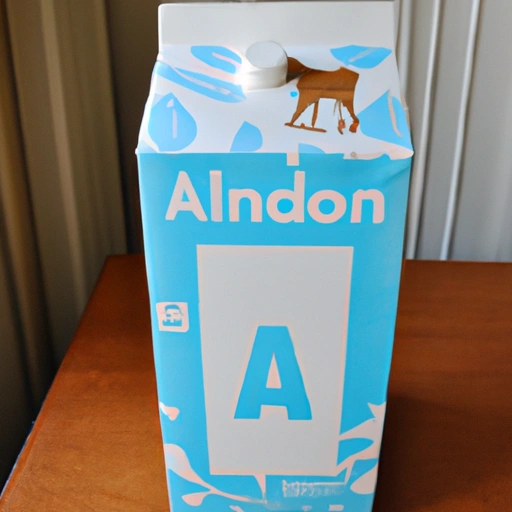Almond Milk
Description

Almond milk is a plant-based beverage made from ground almonds and water. It has a creamy texture and nutty flavor, making it a popular dairy-free alternative to cow's milk. Almond milk can be used in a variety of recipes, and is suitable for vegans, as well as those with lactose intolerance or dairy allergies. With its growing popularity, almond milk is widely available in grocery stores and can be found in sweetened, unsweetened, flavored, and fortified varieties.
Common uses
Almond milk is commonly used as a beverage, in smoothies, coffee, tea, and as a base for dairy-free ice creams and yogurts. It is also widely used in cooking and baking as a substitute for cow's milk, where it imparts a subtle almond flavor. Almond milk is versatile and can be used in both sweet and savory dishes.
Nutritional value
Calories
Approximately 30-50 calories per 8 fl oz (240 mL) for unsweetened varieties.
Protein
Contains about 1 gram of protein per 8 fl oz (240 mL).
Fat
Typically has 2.5 to 3 grams of fat per 8 fl oz (240 mL), mostly from healthy monounsaturated fats.
Carbohydrates
Unsweetened almond milk has about 1-2 grams of carbohydrates per 8 fl oz (240 mL), while sweetened versions have more.
Vitamins
Often fortified with vitamins A, D, and E.
Minerals
May contain calcium and magnesium; often fortified with calcium to match the levels found in cow's milk.
Health benefits
Almond milk is low in calories and sugar, making it a good option for those managing their weight. It's also naturally lactose-free, which is beneficial for individuals with lactose intolerance. The presence of monounsaturated fats can help maintain healthy cholesterol levels. When fortified, almond milk can be a good source of vitamins D and E, important for bone health and antioxidative functions, respectively.
Potential risks
Since almond milk is low in protein, it may not be suitable as a complete milk replacement for children. Some brands contain added sugars, which should be consumed in moderation. Additionally, individuals with nut allergies should avoid almond milk.
Common recipes
Used in recipes like smoothies, pancakes, soups, sauces, and baked goods such as muffins and cakes.
Cooking methods
Can be heated and used in place of dairy milk in most recipes but may curdle at high temperatures if not stabilized.
Pairing with other ingredients
Pairs well with cereal, coffee, chocolate, and a variety of fruits and baking ingredients.
Summary
Almond milk is a nutritious, dairy-free alternative to traditional cow's milk with a variety of culinary uses. Its subtle nutty flavor and creamy texture make it a versatile ingredient in both sweet and savory dishes. With a range of health benefits and a long history of use, almond milk continues to be a favored choice for those looking for plant-based milk options.